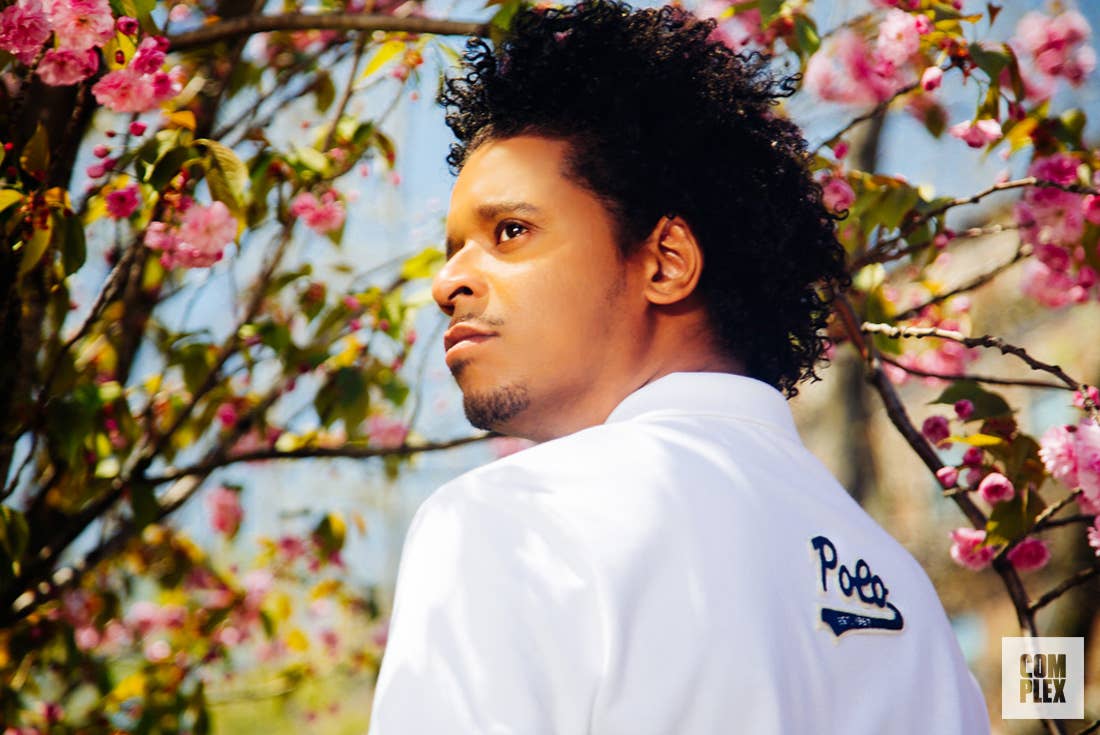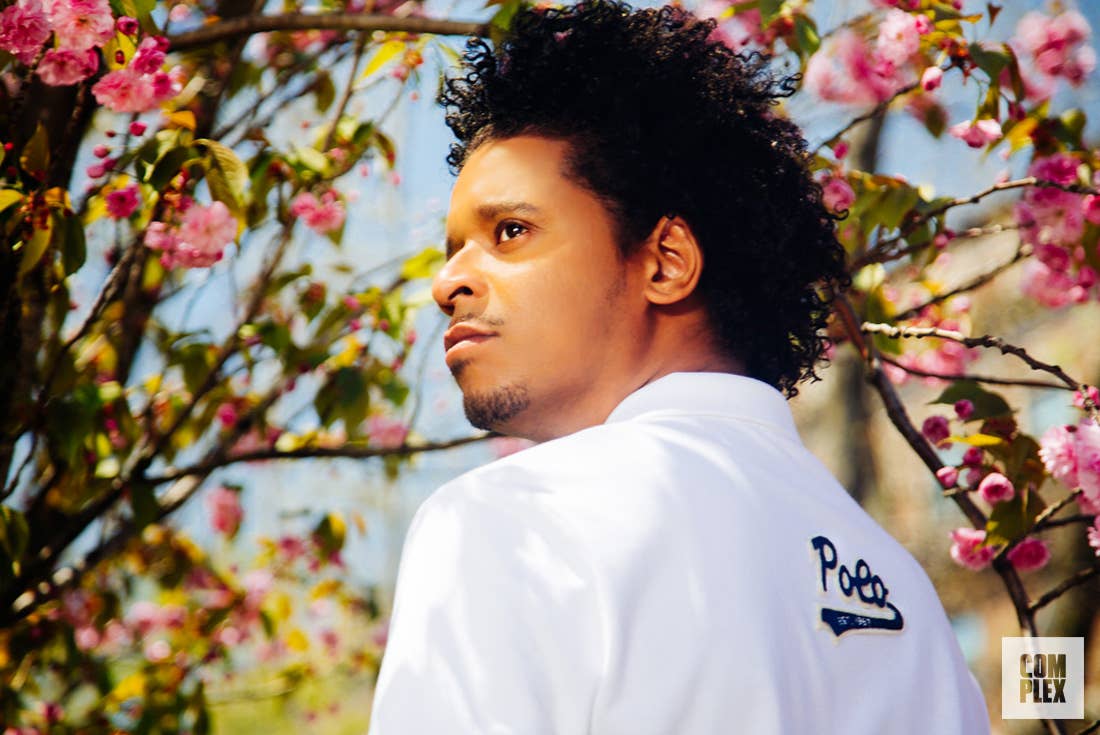
From a park bench in the quiet neighborhood of Fort Greene, Roblé Ali has no difficulty charting his local gastronomic map.
He points to the south, amid rising condos: “I can walk five blocks that way, and get a Shake Shack burger if I wanted to.” Behind us, another destination to the north: “I can walk a few blocks, not even a mile away, and go to Mettā.” (A highly acclaimed South American restaurant where everything is grilled, gaucho-style, on firewood). Heading east: “My boy has a pizza spot, Speedy Romeo.” (Another new-age joint that marvels pizza obsessives and newcomers alike.)
And then, a truck passes by. “Down East!” Roblé says, excitedly. “That’s who I buy my fish from.”
Welcome to Brooklyn.
With a population of nearly 2.7 million people (if detached from Gotham, it’d be the third-most populous city in America), BK often feels like its own world. Especially in this last decade.
The borough that Roblé moved to over 12 years ago looks almost nothing like the one that he lives in today, morphing into—as you may have heard—a cultural force to be reckoned with. If something new and exciting is happening in music, fashion, art, design (you name it, really), you’d likely be able to find its footprints in Kings County.
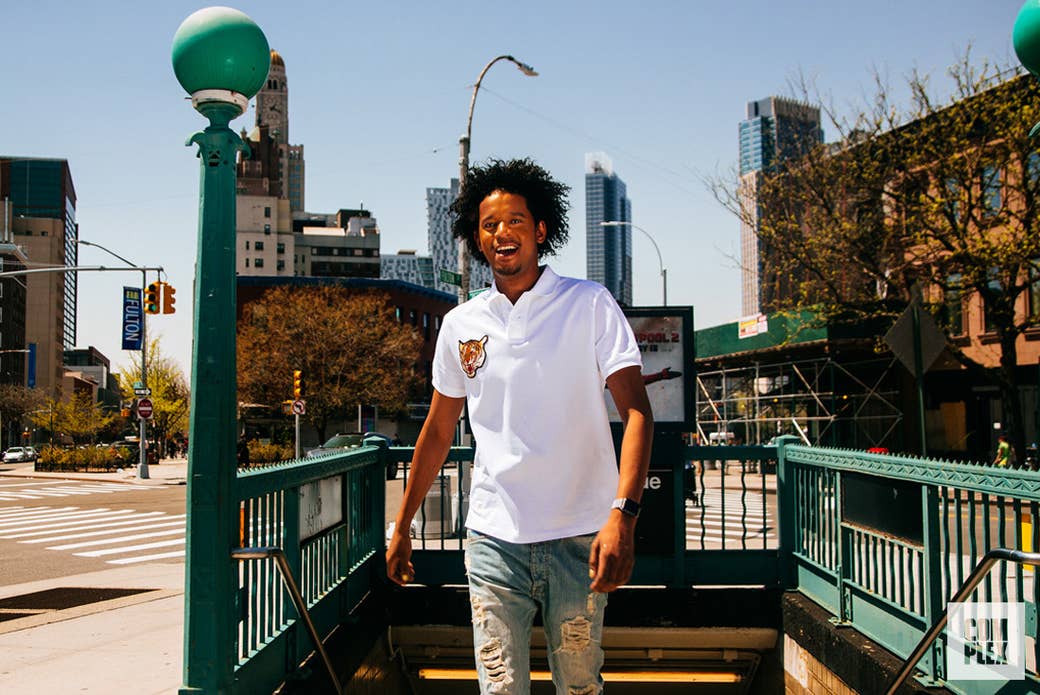
Of course, Brooklyn’s rise has not come without controversy. Its rapid growth is largely a result of gentrification, turning once-blighted neighborhoods into some of the costliest real estate on the eastern seaboard. But whether you see its evolution as a positive or negative one, Brooklyn now undoubtedly rivals (if not surpasses) Manhattan for New York’s seat of power and exertion of influence worldwide.
“I don't have to go [to Manhattan] anymore,” Roblé contends. “I can do basically everything I need to do in Brooklyn.”
Nowhere is that more telling than the borough's food scene. Both rookie and world-famous chefs have arrived in hordes to open the latest and greatest food establishments in the culinary world. But even my own phrasing—a monolithic “food scene”—is a misnomer.
“It's going to be hard for you to find anywhere in America with more food diversity in the amount of space. There's nowhere else.”
“Scene kind of sounds fake to me,” Roblé clarifies. “It’s the real thing, you know what I’m saying?”
Brooklyn has always been a quote-unquote “melting pot” of many diverse (and affordable) scenes. Plural. Limiting it to just one, with primarily newer spots in mind, doesn’t give the Caribbean fare in Crown Heights, the Chinatown haunts of Sunset Park, the Italian pork shops of Dyker Heights, or any of the other amazing ethnic food this borough has to offer the credit they deserve. I stand, very happily and hungrily, corrected.
“It’s going to be hard for you to find anywhere in America with more food diversity in the amount of space,” Roblé says. “There’s nowhere else.”
Like Brooklyn, Roblé’s life has changed dramatically. When he first arrived to the city from Poughkeepsie in the early 2000s, he was working in the kitchens of Manhattan nightclubs, trying to make rent. Fast-forward to 2018, he is Chef Roblé: star chef, party thrower, and on-air personality. His catering company, Roblé & Co., has fed the likes of President Obama, Leonardo DiCaprio, and Michael Jackson; earned him a multi-season television show (Chef Roblé & Co.) on Bravo; and afforded him gigs at major events across the country.
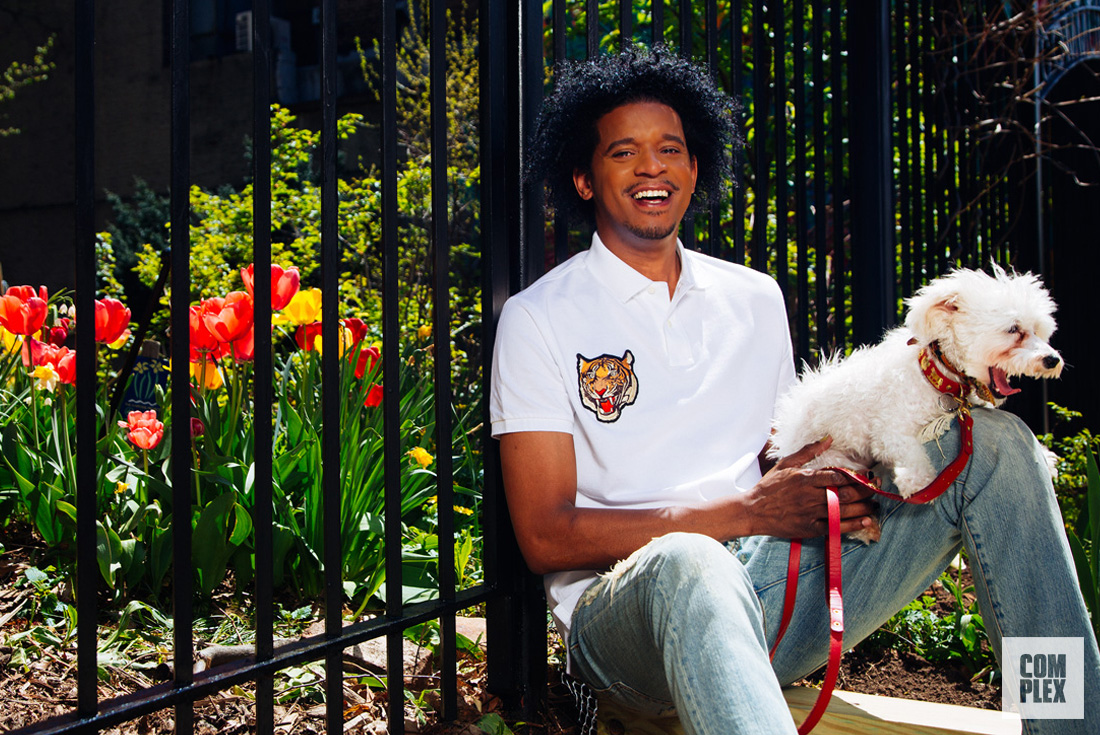
Despite his many successes, the 33-year-old is still hungry for more. Every time you speak with Roblé, he mentions another restaurant or business that he’s recently opened somewhere, or is about to open soon.
“I don't like doing the same thing over, and over, and over,” he says. “Every single day is different for me. I don't have a routine. I hate routine.”
But without Brooklyn, there would be no Chef Roblé. It’s the only home he has known since moving to New York City, and it is where he continues to find the ingredients for his inspiration. If he’s going to cement any legacy, it could only happen here.
“I wouldn't want to live [or work] anywhere else,” Roblé reflects, as he stares off at the beautiful brownstones that line his block. “This is my favorite place in the world. Right here, where we are right now.”
On this neighborhood corner in Fort Greene, Chef Roblé is also Mayor Roblé. During our interview and photo shoot for Polo Ralph Lauren, he’s said “what up” to neighbors, and snapped photos with fans passing by. Earlier, when we first left his apartment for the park, someone called out, “When’s your next restaurant opening up?”
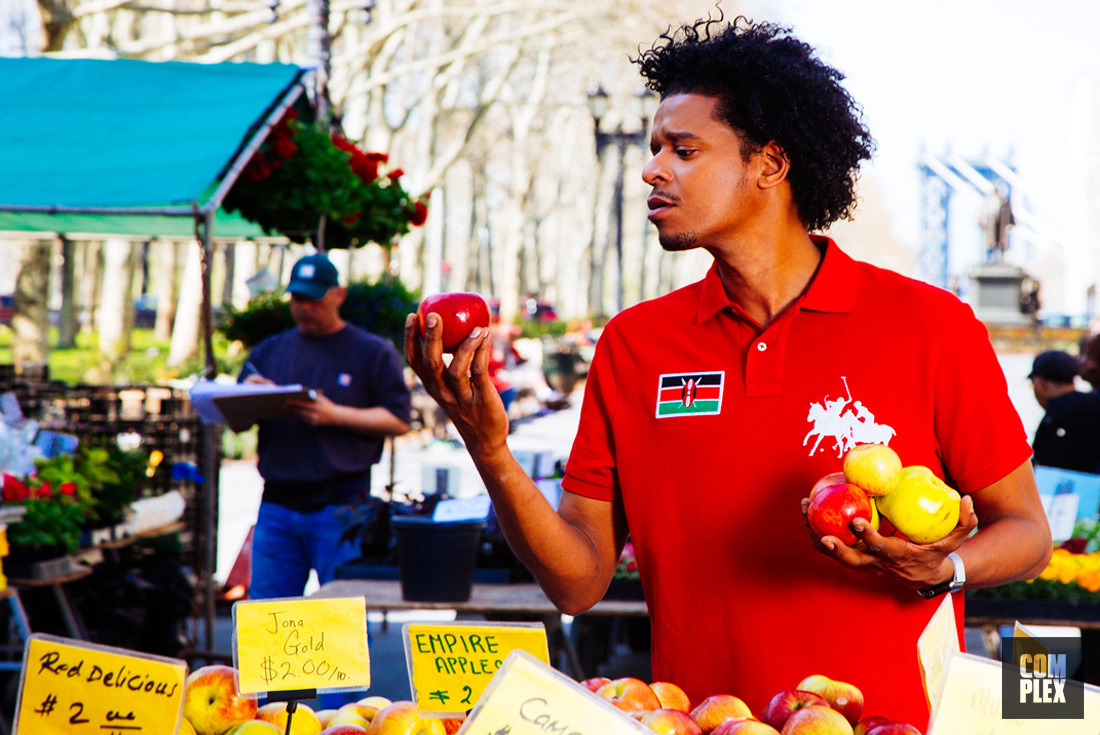
Roblé’s hometown pride has driven his more recent endeavors. He’s in the process of taking over one of Brooklyn’s oldest black-owned restaurants (whose name he’s not ready to reveal just yet). Its owners, now facing retirement, are trusting the keys to him rather than an outsider restaurateur who would open up the same-old New American eatery that pops up everywhere. Roblé has even started customizing shirts for Polo, a brand whose name and style is synonymous with Brooklyn culture. You don’t have to go far from here to see murals of Biggie Smalls rocking Polos.
When you speak to Roblé, it kind of feels like you live on the same block as him. One of the defining qualities of his personality is that he is refreshingly frank for someone in his industry. He doesn’t wax poetic about what food means to him, or have this sort of come-to-Jesus tale that many celebrity chefs often like to spin to journalists like myself.
He started cooking, he says, because of “the desire to want to eat good all the time.” His favorite dishes are ones he hasn’t cooked before, and his favorite crowd to prepare meals for are “people that are paying me to do it.”
“I want to leave my mark on the Earth. I want to do something that brings a positive change to something, and be remembered. I think I've already done that... I'm just having fun now.”
As a journalist, it’s a statement I can sympathize with—being paid for his craft matters. It signifies that you, the customer, see his food as more than mere sustenance. It’s something that should be worth your time and effort.
While making money is nice (and necessary), Roblé’s purpose for cooking runs deeper.
“I want to touch your spirit, man. I want to touch your soul,” he says. “I want it to be a visceral experience.”
Roblé was born in Poughkeepsie, New York, where his mother, who is African-American, met his father, a Somalia native, in college. A young Roblé would come down to New York to visit his grandmother in Harlem and other relatives in Brooklyn from time to time. But his earliest culinary lessons were in the kitchen watching his grandfather, Jesse Harris, cook. Harris ran his own restaurant in Philadelphia before Roblé was born. He then moved to New York where he headed up a catering company, and later took a job back in Poughkeepsie as a chef at Vassar Brothers Medical Center, which was also his grandson's birthplace.
“You know, he’s the only dude I ever saw cook,” Roblé says of his grandfather. “He’s also a cool dude. He has swag, you know. Dressed cool, drove a Cadillac. Me watching him cook, it just made cooking a cool thing to me.”
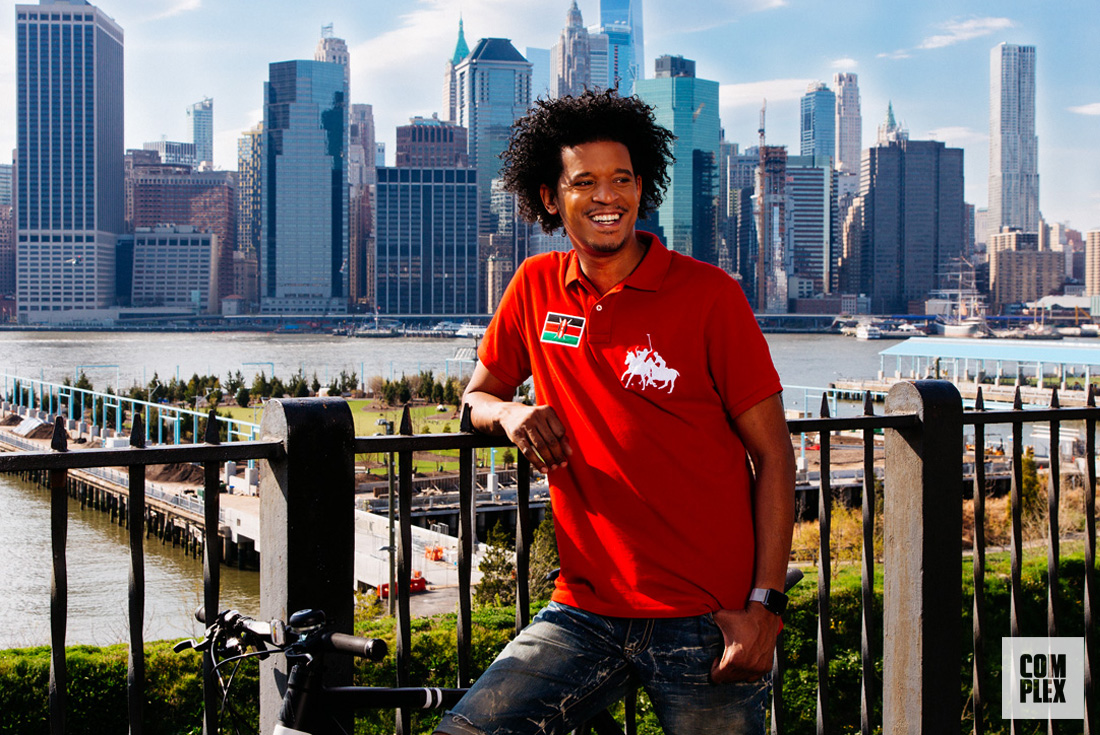
It’s no surprise that Roblé is known for cooking (and catering to) a number of different tastes because he was introduced to a potpourri of foods growing up. He remembers grabbing pizza with his dad, who would speak fluent Italian to the owner. He ate Somali food alongside his big sister and now business partner, Jasmine. His aunt, who was Ethiopian, filled the house with aromas of her country’s cuisine. And his grandpa kicked it old school.
“For us, at home, it would be American comfort food,” he explains. “You know, nothing too fancy.”
After a few cooking jobs in Poughkeepsie during high school, Roblé took his budding talents nearby to the renowned Culinary Institute of America (CIA) in Hyde Park. Because of the school’s financial cost, he dropped out, and instead finished his classes in the realest of real worlds: New York City.
“It was cool, I knew enough,” he says. “I knew what I needed to know, and I learned the rest of it in actual restaurants.” And, as Roblé pointed out to me later, his grandfather never attended a day of culinary school.
That’s when Roblé moved to Brooklyn. At the time, he says, there were less high-rises blocking out the sky, the park we’re talking in today wasn’t as filled with life, and the spaces that now thrive as sought-after eateries were more often empty, or lackluster.
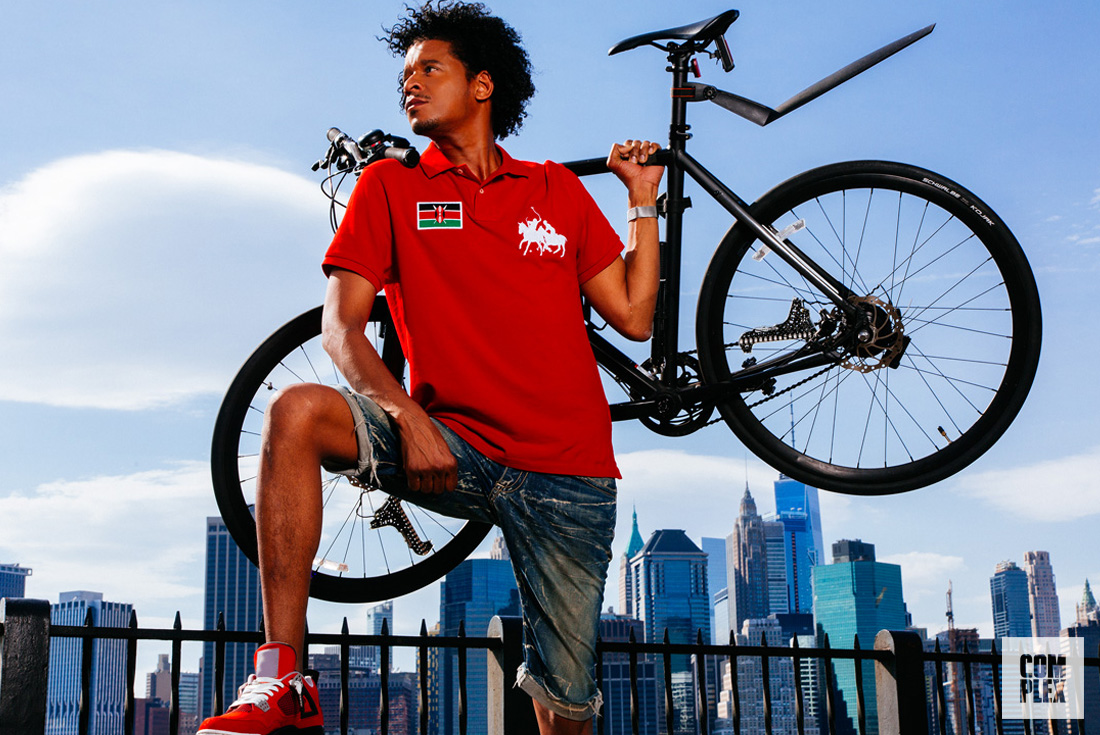
A few kitchen jobs early in his BK experience led him to Chris Santos. Roblé credits the Chopped star and renowned mind behind famed New York spots like Beauty & Essex and Stanton Social with his culinary development, saying that “he kicked my ass and made me great.”
Having established himself in the nightlife world, Roblé was hired in 2009 as the executive chef to open Avenue, a popular nightclub in Manhattan’s Meatpacking District, known for its celebrity VIP list. By 2012, he decided to go into business for himself, and founded Roblé & Co.
“I gradually started to gain clients, and I got to a point where I knew I could do that full-time, and not have to work for anybody else,” he says. “I haven't ever since.”
Compared to restaurants, the catering world, Roblé says, has its perks: Making sure tables are filled isn’t a daily struggle. Nor is worrying about paying high NYC rent costs. He has the license to experiment with new dishes and make specialized menus for each of his clients. No shift is the same. He doesn’t have to answer to anybody’s demands. And perhaps most importantly, he’s in charge of creating his own schedule. Which means he’s always on the move.
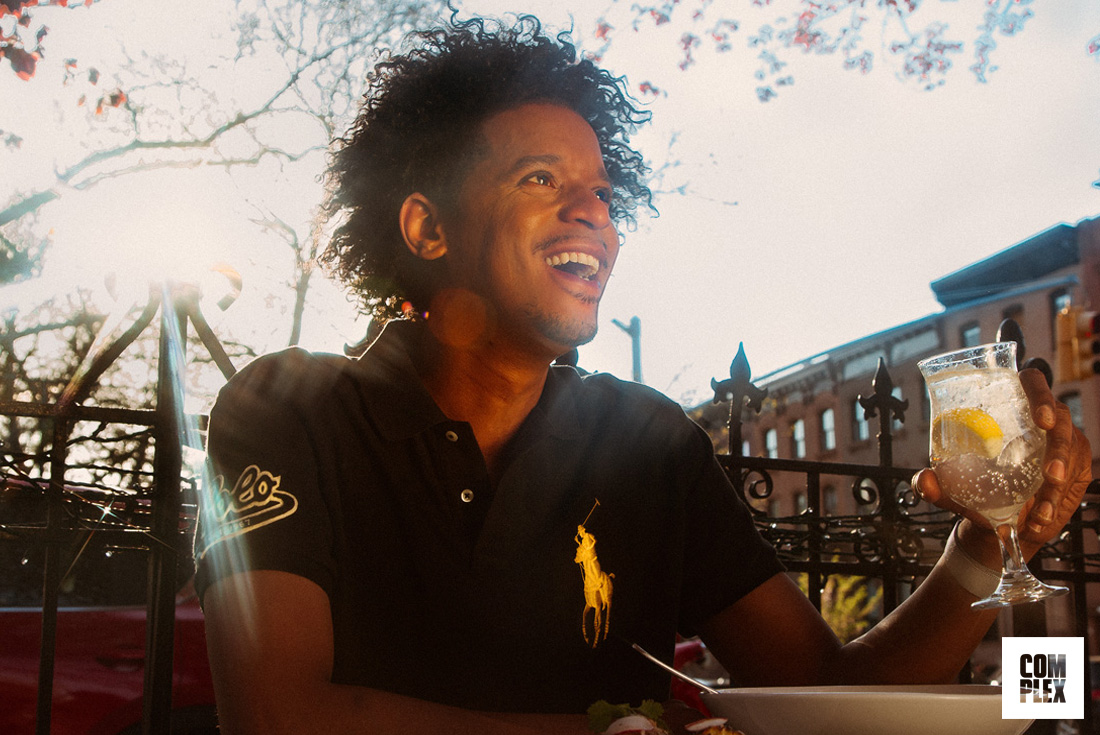
In the days leading up to when Roblé and I meet, he flew to Los Angeles, where he was invited to attend a big movie premiere. Then, he flew back to New York for Everyday People, a monthly dance and dining party that he helped start alongside Saada Ahmed and DJ Moma. Shortly thereafter, it was back to Los Angeles, again, for the Everyday People party there. Today, he finds himself at home, in Brooklyn, taking in a sunny Tuesday afternoon in his favorite park across the street from his apartment.
He’s happy to be home but ready to start the next project. Maybe that’ll be in Philadelphia, where, on a recent trip, he visited the building in which his grandfather’s restaurant once lived. The building, he says, has decayed significantly, and is located in a not-so-safe part of town. But imagine if he brought it back, revitalizing the place where his grandfather got his start. A proven risk-taker and consummate doer, Roblé is the man to do it.
“I want to leave my mark on the Earth. I want to do something that would bring a positive change and be remembered,” says Roblé, before laughing. “I think I’ve already done that... I’m just having fun now.”

